#eastern european folklore
Text
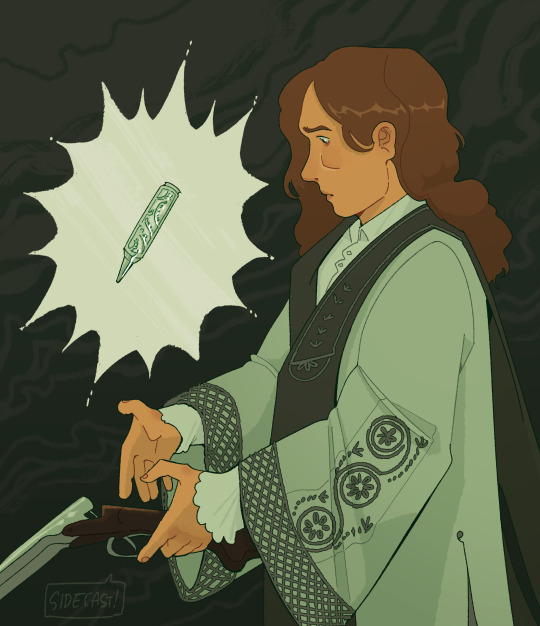
SOMETHING PARA-NATURAL IS AFOOT IN THE EASTERN BLOCK AND ONLY YOU CAN STOP IT
early access on my patreon!
#ocs#oc art#original character#eastern europe#eastern european folklore#folklore#digital art#character art#illustration#mch:rokus#spn oc
76 notes
·
View notes
Text
actually super annoying how looking up romania and eastern european folklore brings me 70% dracula stuff. not just bc of the recent daily dracula thing, this has been a thing since forever. like I get that yall only have one stupid harmful stereotype of us but damn aren't you bored already
3 notes
·
View notes
Text
oh Baba Yaga, we’re really in it now
#can you tell I have a slavic folklore midterm in an hour#I love this class but this is supposed to be the hardest test#mythology tag#russian folktales#eastern european folklore
0 notes
Photo
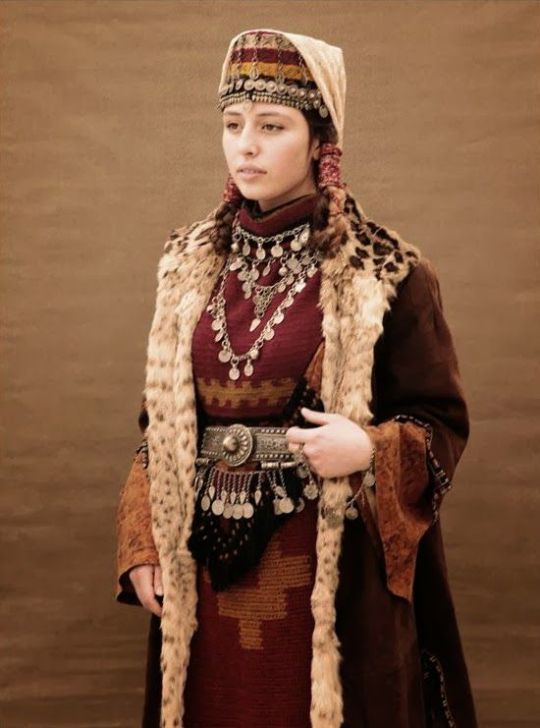
Armenian Folk Costume
#armenian#armenia#folklore#folk costume#ethnographic#europe#eurasia#asian#west asia#Eastern Europeans#caucaus#caucasian
259 notes
·
View notes
Photo


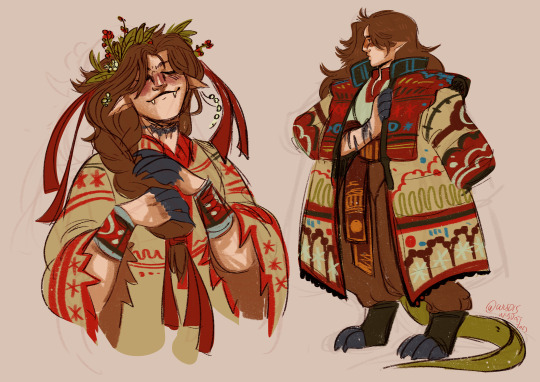
Felt super normal about eastern european traditional clothing today so,,,, made some rough sketches of Annie,,, ( all of them r based off hungarian trad.wear with some inspo from others i found while researching ❤️)
#;my art#;oc talk#;Annie#not her just bc she is my blorbo but also bc her lore is heavily eastern european & folklore based so yeah
552 notes
·
View notes
Text
He Who Comes From Under The Water

Chapter 1 - The Promised Bride
Monster!König X she/her afab Reader
CN sexism & patriarchy, mentions of death, suicidal thoughts, accidental attempted drowning, arranged marriage, choking on water, mention of a human bodies decomposition
eventual smut.
Beta-read by @sandinthemachine and @queenquazar. Thank you both so much for supporting me with obsessing over fairy tales.
Masterlist
“So, you are a king without a queen?” The old man asked while throwing his rod back into the water. “I suppose you require a queen then, eh?”
The king, considering the old fisherman’s words, slowly nodded. “I suppose I do. But where does one get such a fine lady?”
The water below the wooden landing was dark and dirty. Frogs croaked and fireflies danced over the green sludge and water lilies, lively and playful like the flecks of sunlight that reached the surface through the thick forest trees. A pretty scene on any other day.
Not this one.
Your tears had long stopped flowing into the water of the deep pond. Now, you sat there, your hand tangled in the water and your thoughts lost, dark and deep like the water below you.
A few days ago, your grandfather died. A kind old man who had spent the last years of his life close to the warm oven in winter and fishing in the pond in the summertime.
You remembered bedtime stories as a child with sweets sneaked into your hands. You remembered kind eyes who watched out for you as you grew from child to maiden. You remembered worry in those same eyes when your father died in the forest chopping wood, when your brothers perished in a tavern fire, your uncle and your mother succumbing to sickness, and - finally - your cousin breaking his neck after climbing a tree.
Yes, there was a lot of pain in your grandfathers’ eyes. But even more to worry.
The old man had been your last living relative, and most importantly your last male relative.
And now you as an unmarried village girl from a clearly cursed family, had no one who could inherit your family’s house and support you.
It was only time until the village would shun you and chase you away to get rid of all the bad around you.
That is if you were lucky.
You could try to make it into the city where you would live for a while as a beggar or, if you were hungry and deemed pretty enough, work as a whore.
In his last days, your grandfather tried to arrange for a husband, but no one wanted a cursed girl, and so his last words to you were to visit his favorite fishing spot.
You sighed.
Now, you sat on the same spot where your grandfather had sat, catching fish, and gazing over the water.
Maybe that’s what he had meant, you mused. It would be easier to end it all here and jump into the pond only to never return to the surface, drowning your sorrows and yourself with your grandfathers’ blessings. At least you would choose your fate with your chin proudly raised and your dignity untouched, floating into the abyss in your best billowing skirts from the funeral and no more tears left to cry.
As much as that was possible considering your situation.
“It’s a good place to leave this world,” you spoke out loud to taste how it felt on your tongue. It resonated, with the forest, the pond, with you.
“Indeed, it is.”
You twitched in surprise, heart jumping into your throat.
“Who is this?” you called over the water, glancing around for whoever lurked within the trees, hiding between the ferns.
A hand, big and wet, snatched yours from the water and pulled you in with one strong tug.
You wailed in surprise before crashing into the pond and swallowing the muddy green water, gurgling and gasping for air. Something seized you – strong and solid. Instinctually you kicked and punched it.
Was this it?
NO!
Fighting for your life you thrashed around, struggling and trying to free yourself to get back up to the surface. But whoever had you in a hold only dragged you down, carrying you further into the dark.
Your panicked eyes widened, trying to see who attacked you, trying to see anything.
It was dark. Only the dark, green water around you.
No, no, no, no!
Your lungs heaved for air as your heart drummed painfully in your hurting chest.
A second hand twisted around your throat and over your face. Instinctually, you opened your mouth and bit down.
The hands jolted back with a howl reverberating in the water, releasing you from the deadly weight dragging you down. Hungry for air and with burning lungs you swam up with frenzied strokes, pushing through the surface. Gasping and coughing you breathed, feeding your body with much needed air.
Quickly, you glanced around. No one there. Was this someone from the village trying to get rid of you? Did you manage to drag your attacker down with you? Or was it an animal in the water?
Before you could move, something grabbed you again and lifted you a good length out above the water.
You screamed and kicked again only to have your legs and hands fixated in an iron grip.
“Hold still!” A voice commanded you, foreign and vibrating close. You struggled on, thrashing your body against the solid form behind your back, unwilling to take any chances and die here without a fight.
“I said, hold still!” the grip around your limbs tightened, forcing you into stillness. “There, finally.”
Slowly, you turned your head. You were caught in the grip of a dark, green form, pressed against what must be its chest and stared at by sharp, watery eyes from a nearly obscured face from tangled wet hair and a beard.
Who is this? You thought to yourself, still heaving for air.
“Why are you fighting me?” the strange being said, “I’m here to take you in as my bride. Just like I have promised.”
You coughed again, a bit of swamp water and spit running down your chin, splashing onto the being’s arm.
“What?” you cried and with your head still spinning.
“What what?” The large figure snapped back, “The old man asked me to take you as my wife, yet you bite me? Is that how you want to treat your future husband? Do you want me to let you go? I have no need for an unwilling bride.”
You blinked, your body slowing down and your mind starting to think clearly again.
“You nearly drowned me. Let me go!” you cried out as much as your abused lungs allowed.
The figure blinked and instantly dropped you.
With a loud splash you crashed back into the water.
Your body seized and your mind raced, struggling to comprehend and move your body up.
You made a few weak swimming strokes, but it wasn’t enough to move your still tired and abused body up. Water started filling your lungs again and you were about to dr-
Something grabbed you and lifted you. Again.
“Woman!” the strange being cried out in annoyance, “What are you doing?”
You coughed, swamp water from your hair dripping over your face, disorienting you further as you gasped for air.
“Wait, maiden, do you need to breathe?” the strange creature asked, “Make up your mind! I was just trying to take you home, but you don’t want that. So I did like you asked but then you started sinking like a stone back into my waters again, heaving for air!”
You shivered, “Of course I need to breathe! All humans need air, idiot! What kind of question is that?!”
The creature groaned and grumbled, “The old man forgot to mention you are a human. I thought you might be a nymph or a bigger frog lady. Well, that’s just bad luck.”
You snorted, “Oh, I am sorry that me needing air is inconvenient for you! I nearly died down there in those muddy waters!”
“Hey, those are mighty fine waters of mine, thank you very much. Besides, the second time was not my fault.”
“Your waters?” you managed.
“Who else’s waters?” the figure deadpanned as you’d asked the most obvious question, swayed, and started moving towards the landing before carefully putting you onto the planks instead of holding you like a cat holds its naughty young, “Stay. Let me take a better look at you.”
You huffed and collapsed onto the planks out of the wet arms. It wasn’t like you could run anyway with your body still shaky and weak from the near drownings. Instead, you lifted your head for a better look at the stranger as they studied you.
The strange being from the waters was built like a man, but huge and larger than the tallest man you had ever seen. And it had the face close to a man too under all that unkempt hair and beard. But its facial features were fine, much too fine for any man who could lurk in the waters, and slightly too angular and with eyes a bit too lively and sharp to belong to a human as they studied you.
“Pretty girl.” the man from the water finally grumbled, “A bit unruly but pretty. At least that the old man did not lie about it.”
You raised your eyebrows in surprise, “Thank you?”
The man shrugged, “Sorry for trying to drown you, apparently, I misunderstood your fragile physique.”
Fragile physique. He made it sound like an insult.
You took one final breath and summoned your strength to sit up to be on the same eye level as the large man from the water.
“Who are you?” you asked while trying to sort your wet skirts.
He snorted and waved slightly.
“I am König – king of all under the waters. Naturally. And you are the bride I was promised by the old fisherman a couple of days ago.”
Your eyes widened in surprise, “Do you mean my grandfather? He used to fish here.”
The man shrugged, causing little waves around his shoulders where he emerged from the pond, “Most humans all look and smell the same to me, honestly. He was old for a human, liked to share stories, and left me a bit of tobacco as offerings sometimes. Smelled of smoked fish.”
Memories of your grandfather flashed before your eyes where he sat on the bench in front of the house, smoking his pipe in the late hours of the day, watching the sun go down.
Your mouth went dry.
Had he? Did he really?
Did he, in all his misery and worry, promised your hand to a strange man from the pond – a huge and wet and cold and clearly dangerous monster.
You went stiff from the overwhelming thought of being given away like that to a stranger - to a monster.
“Well, you are a human but I’m not in the habit of breaking promises and I'm sure you would make a good enough queen,” König continued, “Unless you object of course. There is little as unhonourable as having an unwilling bride, not even the slimiest toad approves of that.”
König babbled on about waters and ponds and marriage but your head was spinning. Your grandfather arranged for you to marry an algae cover man from the pond who's idea of home nearly killed you. The painful absurdity of it made you consider jumping right back into the water.
The cold, dark and green water.
The buzzing of the summer insects and splashing of the little waves drowned everything else out, turning louder and louder and louder and-
“Maid?”
His hand touched your arm, slowly shaking you.
You jolted up only to fall back.
“Yes?” you managed while leaning back, away from the large, clawed hand.
König’s watery eyes shifted around you as if searching for the right words.
“Listen, I don’t know too much about you humans, “ König started, “but you look cold and miserable. Maybe let’s worry about that first and talk about our wedding later.”
You blinked as the realization in all its form settled in.
Marrying him?
He would drown you in this pond, your flesh rotting and being picked by the fishes until nothing but a pile of bones were left.
Your bones, your lovely bones.
No! You had felt your life slip out of your fingers, the precious air bubbles escaping your lungs bare moments ago. Your cold hands wandered around your pained body intuitively, cradling yourself and trying to protect you from the outside world. You weren’t ready to give up on this life - to give on your body - and you would keep yourself safe and alive. This was your skin, your hair and flesh and bones! Death would come to you one day but you would be damned if it came today at the bottom of a dark pond and by the hands of a man.
“Yes, you are right. I should get dry,” you managed, sensing a chance to escape.
With wobbly legs, you tried to get up only to sway and stumble down on your knees. You needed to leave this place.
König tilted his head, watching you.
You tried again; your muscles too weak to carry you.
“Dear,” König said with slight amusement in his voice, “Your will is admirable, pretty girl. But I doubt it will be enough to get you home.”
“So? Will you drag me back into the pond and finish your work?” you replied, considering the option to crawl home and far away from the water
“Why would I do that, bride?”, he chuckled before turning serious again, looking at you with those blue more than clear inhuman eyes, “I have heard it’s not customary but allow me to get you to your home before you hurt yourself. You humans take so long to heal and an injured bride during the wedding would be a nuisance.”
Fearful you tried to move again.
He watched, waiting for your answer.
You considered his words. Your home. And he clearly wanted you in one piece at least before the wedding.
“No pond?”, you asked with an oh so thin weak voice.
“No pond.” He reassured, “That’s clearly not your element, my little bride-to-be.”
Slowly, you nodded.
Carefully, as if not to spook you, he scooped you back into his arms once again and pressed you to his chest.
You felt yourself going stiff again from fear, but before you could cry out, König stepped out of the water and away from the dreaded pond.
“See, no pond,” König spoke soothingly, and you felt his voice vibrate in his chest as he moved and swayed to avoid branches while shielding you with his shoulders, “I’m keeping my promises, my little bride.”
#there will be a mix of folkloric elements in this since i grew up with both eastern and central european traditions and can do what i want#this was written with a special amount of love for my fellow slavs and hinterland fairy tales collectors#könig#könig cod#könig x reader#könig mw2#könig call of duty#könig fanfiction#könig x you#call of duty#könig x oc#monster#monster x human#monster!könig
1K notes
·
View notes
Text
Gothic Fantasy/Folk Horror Books: 10 Recommendations
Uprooted by Naomi Novik
Spinning Silver by Naomi Novik
Juniper & Thorn by Ava Reid
The Wolf and the Woodsman by Ava Reid
A Far Wilder Magic by Allison Saft
Down Comes the Night by Allison Saft
Not Good For Maidens by Tori Bovalino
The Bear and the Nightingale by Katherine Arden
Nettle & Bone by T. Kingfisher
The Gathering Dark: An Anthology of Folk Horror by Tori Bovalino and others
#juniper & thorn#the wolf and the woodsman#naomi novik#ava reid#t kingfisher#tori bovalino#gothic fantasy#folk horror#folktales#dark fairytale#fairytale retelling#eastern european#folklore#russian folklore#the bear and the nightingale#books#books and literature#book blog#ya books#book recs#book recommendations#bookish#booksbooksbooks#the brothers grimm#gothic books#dark fantasy#cozy fantasy#cozy books#polish folklore#jewish folklore
486 notes
·
View notes
Text


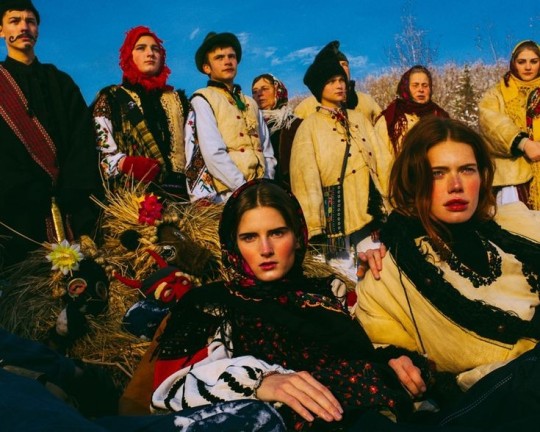
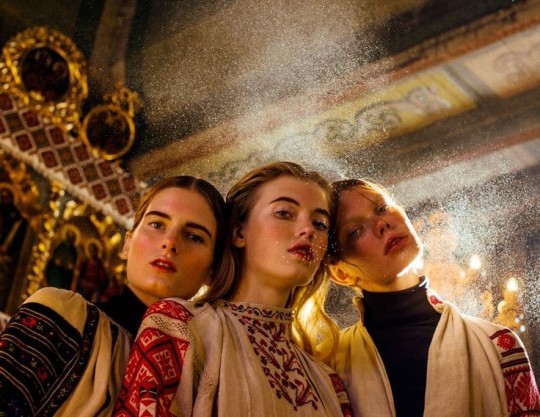
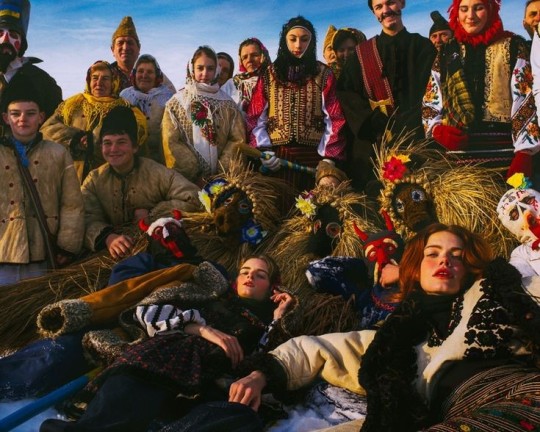

vogue ukraine january 2017, featuring malankars and malanka bears — bear-like costumes made from hay and worn during malanka festival by young men as a part of their adulthood rite of passage
#ukrainian folklore#ukraine#ukrainian culture#folk christianity#slavic folklore#eastern european#ethnography#folk costume#folk tradition#malanka
277 notes
·
View notes
Text
Okay, but I really need more art of Alucard in traditional Romanian folk costume. My Eastern European ass needs it *desperately*.

#castlevania#castlevania netflix#alucard#adrian tepes#alucard tepes#eastern europe#wallachia#romania#Eastern Europeans of Tumblr#romanian folklore#romanian folk costume#traditional clothing
20 notes
·
View notes
Text
Why European dragons breathe fire, you ask?
Zero spice tolerance, duh
#dragons#western dragon#eastern dragon#crack#shitpost#mythology and folklore#source: european#source: trust me bro
29 notes
·
View notes
Text
The Yaga journal: Witches and demons of Eastern Europe
The next article I’ll translate from the issue (I won’t translate all of them since some are not very relevant for this blog) is “Baba Yaga, witches, and the ambiguous demons of oriental Europe” by Stamatis Zochios.
The article opens by praising the 1863′s “Reasoned dictionary of the living russian language”. by scholar, lexicograph and folklorist Vladimir Dahl, which is one of the first “systematic essays” that collects the linguistic treasures of Russia. By collecting more than thirty thousand proverbs and sayings, insisting on the popular and oral language, the Dictionary notably talked about various terms of Russian folklore; domovoi, rusalka, leshii... And when it reaches Baba Yaga, the Dictionary calls her : сказочное страшилищ (skazochnoe strashilishh) , that is to say “monster of fairytales”.But the article wonders about this denomination... Indeed, for many people (such as Bogatyrev) Baba Yaga, like other characters of Russian fairytales (Kochtcheï or Zmey Gorynych) do not exist in popular demonology, and is thus exclusively a character of fairy tales, in which she fulfills very specific functions (aggressor, donator if we take back Propp’s system). But the author of this article wonder if Baba Yaga can’t actually be found in “other folkloric genres” - maybe she is present in legends, in popular beliefs, in superstitions and incantations.
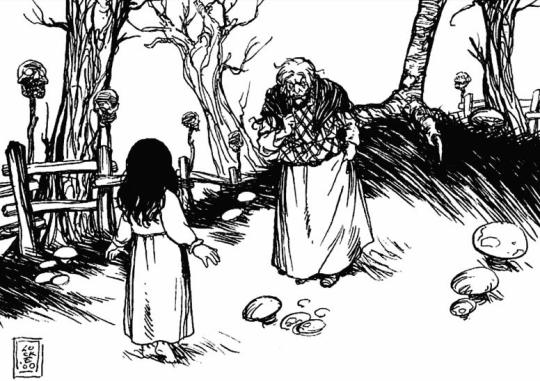
Baba Yaga, as depicted in the roleplaying game “Vampire: The Masquerade”
For example, in a 19th century book by Piotr Efimenko called “Material for ethnography of the Russian population of the Arkhangelsk province”, there is an incantation recorded about a man who wante to seduce/make a woman fall in love with him. During this incantation the man invokes the “demons that served Herod”, Sava, Koldun and Asaul and then - the incantation continues by talking about “three times nine girls” under an oak tree”, to which Baba Yaga brings light. The ritual is about burning wood with the light brought by Baba Yaga, so that the girl may “burn with love” in return. Efimenko also mentions another “old spell for love” that goes like this: “In the middle of the field there are 77 pans of red copper, and on each of them there are 77 Egi-Babas. Each 77 Egi-Babas have 77 daughters with each 77 staffs and 77 brooms. Me, servant of God (insert the man’s name here) beg the daughters of the Egi-Babas. I salute you, daughters of Egi-Babas, and make the servant of God (insert name of the girl here) fall inlove, and bring her to the servant of God (insert name of the man here).” The fact Baba Yaga appears in magical incantations proves that she doesn’t exist merely in fairytales, but was also part of the folk-religion alongside the leshii, rusalka, kikimora and domovoi. However two details have to be insisted upon.
One: the variation of the name Baba Yaga, as the plural “Egi-Babas”. The name Baba Yaga appears in numerous different languages. In Russian and Ukrainian we find Баба-Язя, Язя, Язі-баба, Гадра ; in Polish jędza, babojędza ; in Czech jezinka, Ježibaba meaning “witch, woman of the forest”, in Serbian баба jега ; in Slovanian jaga baba, ježi baba ... Baba is not a problem in itself. Baba, comes from the old Slavic баба and is a diminutive of бабушка (babyshka), “grand-mother” - which means all at the same time a “peasant woman”, “a midwife”, a (school mistress? the article is a bit unclear here), a “stone statue of a pagan deity”, and in general a woman, young or old. Of course, while the alternate meanings cannot be ignored, the main meaning for Baba Yaga’s name is “old woman”. Then comes “Yaga” and its variations, “Egi”, “Jedzi”, “Jedza”, which is more problematic. In Fasmer’s etymology dictionary, he thinks it comes from the proto-Slagic (j)ega, meaning “wrath” or “horror”. Most dictionaries take back this etymology, and consider it a mix of the term baba, старуха (staruha), “old woman”, and of яга, злая (zlaia), “evil, pain, torment, problem”. So it would mean злая женщина (zlaja zhenshhina), “the woman of evil”, “the tormenting woman”. However this interpretation of Yaga as “pain” is deemed restrictive by the author of this article.
Aleksandr Afanassiev, in his “Poetic concepts of the Slavs on nature”, proposed a different etymology coming from the anskrit “ahi”, meaning “snake”. Thus, Baba Yaga would be originally a snake-woman similar to the lamia and drangua of the Neo-hellenistic fairytales and Albanian beliefs. Slavic folklore seems to push towards this direction since sometimes Baba Yaga is the mother of three demon-like daughters (who sometimes can be princesses, with one marrying the hero), and of a son-snake that will be killed by the hero. Slovakian fairytales tale back the link with snakes, as they call the sons of Jezi-Baba “demon snakes”. On top of that, an incantation from the 18th century to banish snakes talks about Yaga Zmeia Bura (Yaga the brown snake): “I will send Yaga the brown snake after you. Yaga the brown snake will cover your wound with wool.” According to Polivka, “jaza” is a countryside term to talk about a mythical snake that humans never see, and that turns every seven years into a winged seven-headed serpent. With all that being said, it becomes clear (at least to the author of this article) that one of the versions of Yaga is the drakaina, the female dragon with human characteristics. These entities are usually depicted with the head and torso of women, but the lower body of a snake. They are a big feature of the mythologies of the Eurasian lands - in France the most famous example is Mélusine, the half-snake half-woman queen, whose story was recorded between the end of the 14th century and the beginning of the 15th by Jean d’Arras (in his prose novel La Noble Histoire de Lusignan) and by Couldrette (in the poetic work Roman de Mélusine). For some scholars, these hybrid womans are derived from the Mother Goddess figure, and by their physical duality manifest their double nature of benevolence-malevolence, aggressor-donator.
If we come back to the incantation of Efimenko, we notice that the 77 daughters of Baba Yaga each have a “metly”, a “broom”. This object isn’t just the broom Baba Yaga uses alongside her mortar and pestle to travel around - it is also the main attribute of the witches, and the witch with her broom is a motif prevalent in numerous textes of Western Europe between the 15th and 16th centuries. Already in medieval literature examples of this topic could be found: in the French works “Perceforest” and “Champion des dames”, the old witches are described flyng on staffs or brooms, turning into birds, to either eat little children or go to witches’ sabbaths. Baba Yaga travels similarly: Afanassiev noted that she goes to gathering of witches while riding a mortar, with a pestle in one hand and a broom in the other. Federowsky noted that Baba Yaga was supposed to be either the “aunt” or the “mistress” of all witches. Baba Yaga herself in often called an old witch, numerous dictionaries explaining her name as meaning старуха-колдунья (staruha-koldun’ja), which literaly means old witch. Even more precisely, she is an old witch who kidnaps children in order to devour their flesh and drink their blood. We find back in other countries of Europe this myth of the “bogeywoman cannibal-witch”, especially dangerous towards newborns and mothers, as the “strix” or “strige”. According to Polivka, in his 1922 article about the supernatural in Slovakian fairytales, the ježibaba is the same being as the striga/strige. And he also ties these two beings to the bosorka, a creature found in Slovakia, in eastern Moravia, and in Wallachia, and which means originally a witch or a sorceress, but that in folklore took a role similar to the striga or ježibaba.
Vinogradova, in a study of the figure of the bosorka, described this Carpathian-Ukrainian witch as a being that attacked people in different ways. For example she stole the milk from the cows - a recurring theme of witches tales in Western Europe (mentionned by Luther in his texts as to one of the reasons witches had to be put to death), but that also corresponds to a tale of the Baba Yaga where she is depicted as sucking the milk out of the breast of a young woman (an AT 519 tale, “The Strong Woman as Bride”). In conclusion, the striga-bosorka is clearly related to the Slovakian version of Baba Yaga, the Ježibaba. The Ježibaba, a figure of Western Slavic folklore, also appears as numerous local variations. She is Jenzibaba, Jendzibaba, Endzibaba, Jazibaba, and in Poland she is either “jedza-baba” (the very wicked woman) or “jedzona, jedza-baba, jagababa” (witch). However this Slovakian witch isn’t always evil: in three fairytales, Ježibaba is a helper bringing gifts, appearing as a trio of sisters (with a clear nod to the three fatae, the three moirae or the three fairies of traditional fairytales) who help the hero escape an ogre who hunts him. They help him by gifting him with food, and then lending him their magical dogs. And in other farytale, the three sisters help a lazy girl spin threads.
In this last case, Ježibaba is tied to the action of spinning. It isn’t a surprise as Baba Yaga herself is often depicted spinning wool or owning a loom ; and several times she asks the young girls who arrive at her home to spin for her (AT 480, The Spinning-Woman by the Spring) - AND in some variations, her isba doesn’t stand on chicken legs, but rather on a spindle. This relationship between the female supernatural figure (fairy or witch) and the action of spinning is very typical of European folkore. In several Eastern Slavic traditions, the figure of Paraskeva-Piatnitsa (or Pyatnitsa-Prascovia, who is often related to Baba Yaga), is an important saint, personification of Friday and protectress of crops - and she punishes women who dare spin on the fifth day of the week. Sometimes it is a strong punishment: she will deform the fingers of the woman who dares spin the friday, which relates her to the naroua (or naroue, narova, narove) a nocturnal fairy of Isère and Savoie in France, who manifests during the Twelve Days of Christmas and enters home to punish those that work at midnight or during holidays - especially spinners and lacemakers. In a Savoie folktales she is said to beat up lacemakers until almost killing them, hits them on the fingers with her wand, beats them up with a beef’s leg or a beef’s nerves, and attacks children with both a cow’s leg in one hand and a beef’s leg in another. These bans are also found in the Greek version of Piatnitsa: Agia Paraskevi, Saint Paraskevi, who punishes the spinners that work on Thursday’s nights, during Friday, or during the feast-day of the Saint (26 of July). But her punishment is to force them to eat the flesh of a corpse. Finally, we find the link between spinning and the demonic woman/witch/fairy through the Romanian cousin of Baba Yaga - Baba Cloanta, who says that she is ugly because she spinned too much during her life. And it all ties back to the “Perceforest” tale mentionned above - in the text, the witches, described as old matrons disheveled and bearded, not only fly around on staffs and little wooden chairs, but also by riding on spindles and reels/spools.
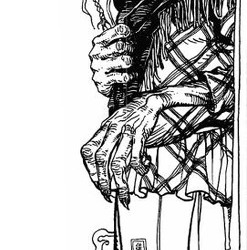
Another typical example of “demonic woman” often compared and related to Baba Yaga is the character known as “Perchta” in her Alpine-Germanic form, Baba Pehtra in Slovenia, or Pechtrababajaga according to a Russian neologism. The name Perchta, Berchta, Percht, Bercht comes from the old high German “beraht”, of the Old German “behrt” and of the root “berhto-”, which is tied to the French “brillant” and the English “brilliant”. So Berchta, or Perchta, would mean “the brilliant one”, “the bringer of light”. Why such a positive name for a malevolent character?
In 1468, the Thesaurus pauperum, written by John XXI, compares two fairies with a cult in medieval France, “Satia” and “dame Abonde”, with another mythological woman: Perchta. The Thesaurus pauperum describes “another type of superstition and idolatry” which consists in leaving at night recipients with food and drinks, destined to ladies that are supposed to visit the house - dame Abonde or Satia, that is also known as “dame Percht” or “Perchtum”, who comes with her whole “troop”. In exchange of finding these open recipients, the ladies will thenfill them regularly, bringing with them riches and abundance. “Many believed that it is during the holy nights, between the birth of Jesus and the night of the Epiphany, that these ladies, led by Perchta, visit homes”, and thus during these nights, people leave on the table bread, chesse, milk, meat, eggs, wine and water, alongside spoons, plates, cups, knives, so that when lady Perchta and her group visit the house, they find everything prepared for them, and bless the house in return with prosperity. So the text cannot be more explict: peasants prepared meals at night for the visit of lady Perchta, it is the custom of the “mensas ornare”, to prepare the table in honor of a lady visiting houses at night. If she finds offerings - cuttlery, drinks, food, especially sugary food - she rewards the house with riches. Else, she punishes the inhabitants of the home.
But Perchta doesn’t just punish for this missing meal. Several stories also describe Perchta looking everywhere in the house she visits, checking every corner to spot any “irregularity”. The most serious of those sins is tied to spinning: the woman of the house is forced to stop her work before midnight, or to not work on a holiday - especially an important holiday of the Twelve Days, such as Christmas or the Epiphany. If the woman is spotted working ; or if Perchta doesn’t found the house cleaned up and tidied up ; or if the flax is not spinned, the goddess (Perchta) will punish the woman. This is why she was called “Spinnstubenfrau”, “the woman of the spinning room”. It is also a nickname of a German spirit known as Berchta - as Spinnstubenfrau, she takes the shape of an old witch who appears in people’s houses during the winter months. She is the guardian spirit of barns and of the spinning-room, who always check work is properly and correctly done. And her punishment was quite brutal: she split open the belly of her victim, and replaces the entrails with garbage. Thomas Hill in his article “Perchta the Belly Slitther” sees in this punishment the remnants of old chamanic-initiation rite ; which would tie to it an analysis done by Andrey Toporkov concerning the “cooking of the child” by Baba Yaga in the storyes of the type AT 327 C or F. In these tales a boy (it might be Ivashka, Zhikharko, Filyushka...) arrives at Baba Yag’s isba, and the witch asks her daughter to cook the boy. The boy makes sure he can’t be pushed in the oven by taking a wrong body posture, and convinces the girl to show him how he should enter the oven. Baba Yaga shows him to do so, enters the oven, and the boy finds the door behind her, trapping Baba Yaga in the fire. According to Toporkov, we can find behind this story an old ritual according to which a baby was placed three times in an oven to give it strength. (The article reminds that Vladimir Propp did highlight the function of Baba Yaga as an “initiation rite” in fairytales - and how Propp considered that Baba Yaga is a caricature of the leader of the rite of passage in primitive societies). And finally, in a tale of Yakutia, the Ega-Baba is described as a chaman, invoked to resurrect a killed person. The author of the article concludes that the first link between Yaga and Perchta is that they are witches/goddesses that can be protectress, but have a demonic/punishment-aspect that can be balanced by a benevolent/initiation-aspect. But it doesn’t stop here.
The Twelve Days are celebrations in honor of Perchta, practiced in Germany, Austria and Switzerland. Still today, “Percht” is a term used to call masked person who haunt at night the villages of High-Styria or the land of Salzbourg: they visit houses while wearing masks, clothed in tatters and holding brooms. During these celebrations, young people either dress up as beautiful girls in traditional costumes (the schöne Perchten), either as ugly old woman (die schiache Perchten). These last ones are inspired by the numerous depictions of Perchta as an old woman, or sometimes a human-animal hybrid, with revolting trait - most prominent of them being the feet of a goose. This could explain in Serbia the existence of a Baba Jaga/Baba Jega with a chicken feet, or even the chicken feet carrying the isba of Baba Yaga. This deformation also recalls a figure of the French region of Franche-Comté, Tante Arie (Aunt Arie), another supernatural woman of the Twelve Days tied to spinning. The second most prominent trait of the “old Perchta” is an iron nose - already in the 14th century, Martin of Amberg wrote about “Percht mit der eisnen nasen”, “Percht with an iron nose”. Yaga also sometimes hag an iron nose, and this is why she was associated with other figures of Carpathian or Western Ukraine folklores - such as Zalizna baba or Zaliznonosa baba, the “old woman of iron”, who lives in a palace standing on duck legs ; there is also Vasorru Baba, the iron-nosed woman of Hungaria. Or Huld - another Spinsstubenfrau, often related to Perchta, but who has more sinister connotations. Huld has an enormous nose according to Luther, and Grimm notes that sometimes she appears as a witch with one very long tooth. This last characteristic if also recurring in Eastern Europe’s mythologies: in Serbia Gvozdenzuba (Iron Teeth) is said to burn the bad spinners ; and Baba Yaga is sometimes described with one or several long teeth, often in iron. But it is another aspect of the myths of Huld, also known as Holda or Frau Holle, that led the scholar Potebnja to relate her to Perchta and Baba Yaga.
According to German folk-belief, Huld (or often Perchta) shakes her pillowcases filled with feathers, which causes the snow or the frost ; and thunder rumbles when she moves her linen spool. It is also said that the Milky Way was spinned with her spinning wheel - and thus she controls the weather. In a very similar function, the Baba Jaudocha of Western Ukraine (also called Baba Dochia, Odochia, Eudochia, Dochita, Baba Odotia, a name coming from the Greek Eudokia) is often associated with Baba Yaga, and she also creates snow by moving either her twelve pillows, or her fur coat. According to Afanassiev, the Bielorussians believed that behind the thunderclouds, you could find Baba Yaga with her broom, her mortar, her magic carpet, her flying horses or her seven-league boots. For the Slovakians, Yaga could create bad or beautiful weather. In Russia, she is sometimes called ярою, бурою, дикою , “jaroju, buroju, dikoju”, a name connected to thunderstorms. Sometimes Yaga and her daughters appear as flying snakes - and the полет змея, the “polet smeja”, the “flight of the snake” was believed to cause storms, thunder and earthquakes. In a popular folk-song, Yaga is called the witch of winter: “Sun, you saw the old Yaga, Baba Yaga, the winter witch, this ferocious woman, she escaped spring, she fled away from the just, she brought cold in a bag, she shook cold on earth, she tripped and rolled down the hill.” Finally, for Potebnia, the duality and ambiguity of Baba Yaga, who steals away and yet gives, can be related to the duality of the cloud, who fertilizes the land in summer, and brings rain in winter. Baba Yaga is a solar goddess as much as a chthonian goddess - she conjointly protects births, and yet is a psychopomp causing death.
It seems, through these examples, that Baba Yaga is a goddess - or to be precise, a spirit of nature. Sometimes she is a leshachikha, the wife of the “leshii”, the spirit of the forest, and she herself is a spirit of the woods, living alone in an isolated isba deep in the thick forests. She is thus often paralleled with Muma Padurii, the Mother of the Forest of Romanian folklore, who lives in a hut above rooster’s legs, surrounded by a fence covered in skulls, and who steals children away (in tales of the type AT 327 A, Hansel and Gretel). This aspect of Baba Yaga as a spirit of the forest, and more generally as a “genius loci” (spirit of the place) also makes her similar to another very important figure of Slavic folklore: Полудница (Poludnica), the “woman of noon”. She is an old woman with long thick hair, wearing rags, and who lives in reeds and nettles ; or she can rather be a very beautiful maiden dressed in white, who punishes those that work at noon. She especially appears in rye fields, and protects the harvest. In other tales, she rather sucks away the life-force of the fields - which would relate her to some stories where Baba Yaga runs through rye fields (either with a scarf of her head, or with her hair flowing behind her). Poludnica can also look like Baya Yaga: Roger Caillois, in his article “Spectres de midi dans la démonologie slave” (Noon wraiths in the Slavic demonology), mentionned that Poludnica was a liminal deity of fields, to which one chanted полудница во ржи, покажи рубежи, куда хошь побѣжи !, “Poludnicaa in the rye - show the limits - and go where you want.” This liminal aspects reminds of an aspect of Baba Yaga as a genius loci, tied to a specific place that she defends. It is an aspect found as Baba Yaga, Baba Gorbata, Polydnitsa and Pozhinalka: Baba Yaga is either a benevolent spirit that protects the place and the harvest ; either she is a malevolent sprit that absorbs the life-force of the harvest and destroys it. This is why she must be chased away, and thus it explains a Slovanian song that people sing during the holiday of Jurij (the feast day of Saint George), the 23rd of April, an agrarian holiday for the resurrection of nature: Zelenga Jurja (Green George), we guide, butter and eggs we ask, the Baba Yaga we banish, the Spring we spread!”. This chant was tied with a ritual sacrifice: the mannequin of an old woman had to be burned. As such, Baba Yaga and her avatars, was a spirt that had to be hunted down or banned - which is a custom found all over Europe, but especially in Slavic Europe. At the end of the harvest, several magical formulas were used to push away or cut into pieces the “old woman” ; and we can think back of Frazer’s work on the figure of the “Hag” (which in the English languages means as much an old woman as a malevolent spirit), who is herself a dual figure. In a village of Styria, the Mother of wheat, is said to be dressed in white and to be born from the last wheat bundle. She can be seen at midnight in wheat fields, that she crosses to fertilize ; but if she is angry against a farmer, she will dry up all of his wheat. But then the old woman must be sacrificed - just like in the feast of Jurij.
The author concludes that the “folkloric” aspect of Baba Yaga stays relatively unknown in the Western world and the non-russophone lands. The most detailed and complete work the author could find about it is Andreas Johns’ book “Baba Yaga: The Ambiguous Mother and Witch of the Russian Folktale”. The author of the article tried to prove that, as Johns said, the Baba Yaga is fundamentaly ambiguous - at the same time a kidnaping witch, a psychopomp, a cannibal, a protectress of birth, a guardian of places, a spirit of nature and harvests... And that she is part of an entire web and system of demon-feminine figures that create a mythology ensemble with common characteristic - very present in Eastern Europe, but still existing on the continent as a whole.
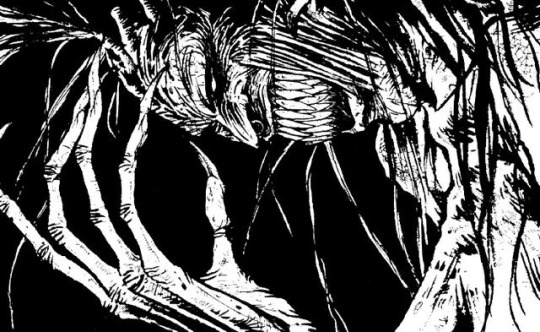
#the yaga journal#baba yaga#slavic folklore#eastern europe folklore#european folklore#perchta#fairies#fairy folklore#demonology#demons#witches
56 notes
·
View notes
Text
You leave a bookish 8 year old alone with a small tome of translated Danish folk ballads ONCE and twenty years later she's still obsessed lol
(it's me I'm the 8 year old)
The book in question:
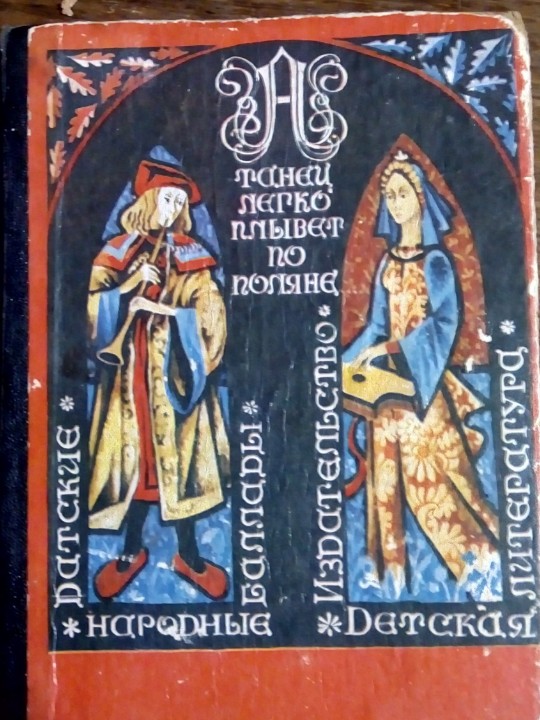
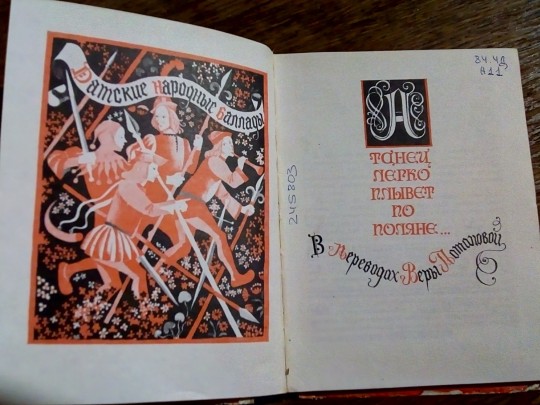
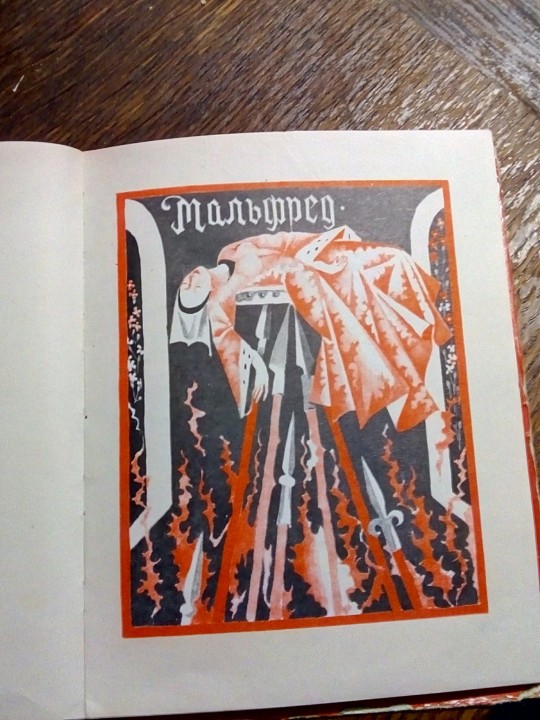


(It's a russian translation my parents must've brought with them from Kyiv when we moved - and as furious as I am at Russia rn I still love it)
Sadly I haven't yet been able to find recordings of all the songs from this book but I have So.Many.Youtube videos . of folk songs
#to be clear it's way more than just Denmark by now: ItFrance Spain Italy British Isles Portugal Flanders& Netherlands Scandinavia Ukraine#Finland & Baltics#& assorted Eastern European too#(British Isles alone is 1000+ youtube videos rn)#my hand slipped ok#i'm a magpie 😂#folk music#ballads#folk songs#traditional music#music#folklore#about OP#me
35 notes
·
View notes
Text
Flying on a broom is so last season. I want to fly in a mortar while wielding a pestle, or just travel in a sentient cottage that walks on chicken legs.
#mother witch ramblings#witchblr#baba yaga#slavic paganism#eastern european mythology#folklores#folkloric witch
63 notes
·
View notes
Text
An dragon from Librum Prodigiosum! The Zilant, from Easter European mythology! This chimeric beastie appears in many tales- with one of the most famous describing it as the leader of a swarm of snakes which inhabited Zilantaw Hill- some say it was slain by a knight, but others claim it escaped into a lake where it still lives to this day!
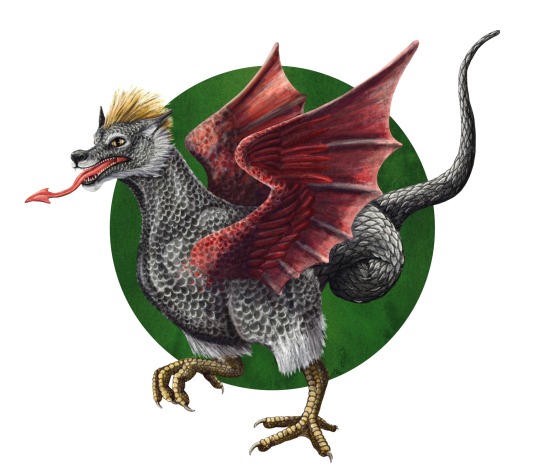
#digital art#digital illustration#fantasy#folklore#mythology#librum prodigiosum#monster#art#mythical creatures#dragon art#creature#dragon#Eastern European mythology#slavic mythology#chimera#mythologyart
38 notes
·
View notes
Text
thinkin about changing my nosferatus name to chupacabra 🤔
#sammy says shit#her current name is yaga which to be completely honest was supposed to be a placeholder#but as placeholder things go.... it wasnt#i just dont see her picking that name since its eastern european folklore and not american#obviously americans known about baba yaga anyway but you get my point#gimme some cool lesser known american cryptids
2 notes
·
View notes
Text
youtube
#hellhounds#monstrum#pbs#storied#english lore#folklore#european lore#asian lore#middle eastern lore#videos#Youtube
6 notes
·
View notes